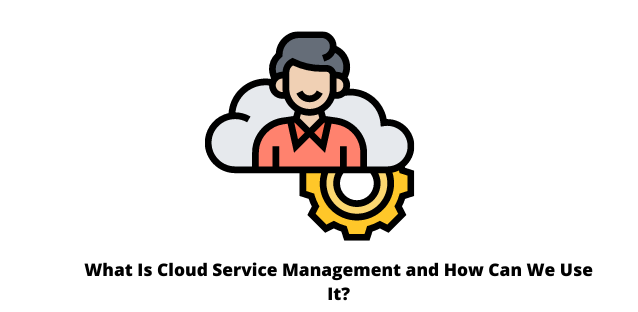The way IT services are being offered is quickly changing. From a conventional data center to IT services being offered through cloud service companies. Most of the changes are attributed to increased technological advancements.
The fact that many people are connected to the internet means that IT service providers need to come up with ways of managing the growing demand. Businesses and individuals send and receive a lot of information through the internet every day. The only way to offer quality services is to adapt to new technologies.
What is Cloud Service Management?
Cloud service management can be described as the management of data with the help of special software technologies used in designing and monitoring applications.
A cloud management strategy that has been well designed can give IT experts an upper hand over various infrastructure dynamics and other computing environments. In other words, it gives developers and network administrators and opportunity to control their networking operations.
Why Is Cloud Management Important?
As mentioned earlier, the way IT services are being offered has drastically changed. There’s a need to adapt to new technologies in order to offer the best services.
Here are several reasons why cloud management is important:
- Quick delivery
Today’s customers need almost instant deliveries and feedback. Any delays give them a wrong perception of your business. Customers will only choose your services if you prove that you can always deliver on time. But with cloud computing, you are able to offer quick deliveries to every customer and prevent disappointment.
- Security
For holistic management, there ought to be maximum security, or else management won’t be complete. Consequently, businesses should offer adequate security and confidentiality. This will ensure that programs, files, and customer data are always secure.
- Flexibility
Customers require several gadgets or devices to store information, create documents, and access the internet. They will need things such as CPU, network configuration, disk space among others to undertake various tasks. You should ensure that these facilities are user-friendly and offer maximum flexibility to customers
- Economical
Most cloud service providers try to keep their prices as low as possible. The good news is that there are many providers available. You can take a look at their packages and compare prices.
Cloud Management Goals and Characteristics
The major challenge for cloud management is cloud sprawl. This means that it is possible to lose track of the resources found in the cloud.
Cloud management has several components including, security, automation, performance monitoring, governance and compliance, and cost management.
Challenges Faced During Cloud Management
Although cloud service management is a great way to improve communication and interaction with clients, there are a number of challenges that you are bound to face. One of them is poor internet connectivity. The other major challenge of qualified personnel.
Bottom line
Traditional Information Technology Service Management – ITSM is gradually irrelevant to the current digital world. The use of cloud service management is quickly getting embraced because of the numerous benefits that come with it. As a business owner, your primary objective is to offer quality services to customers.

